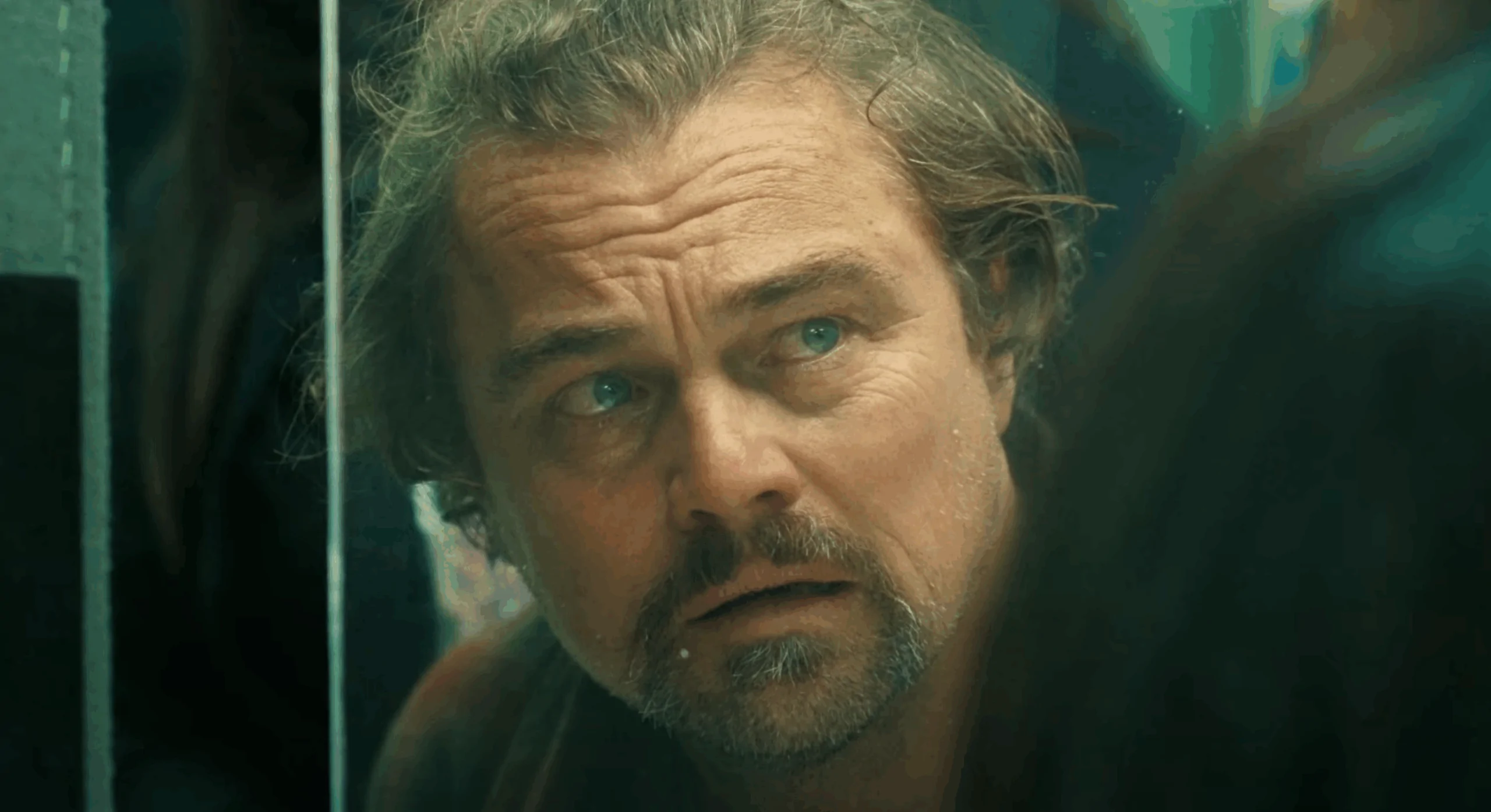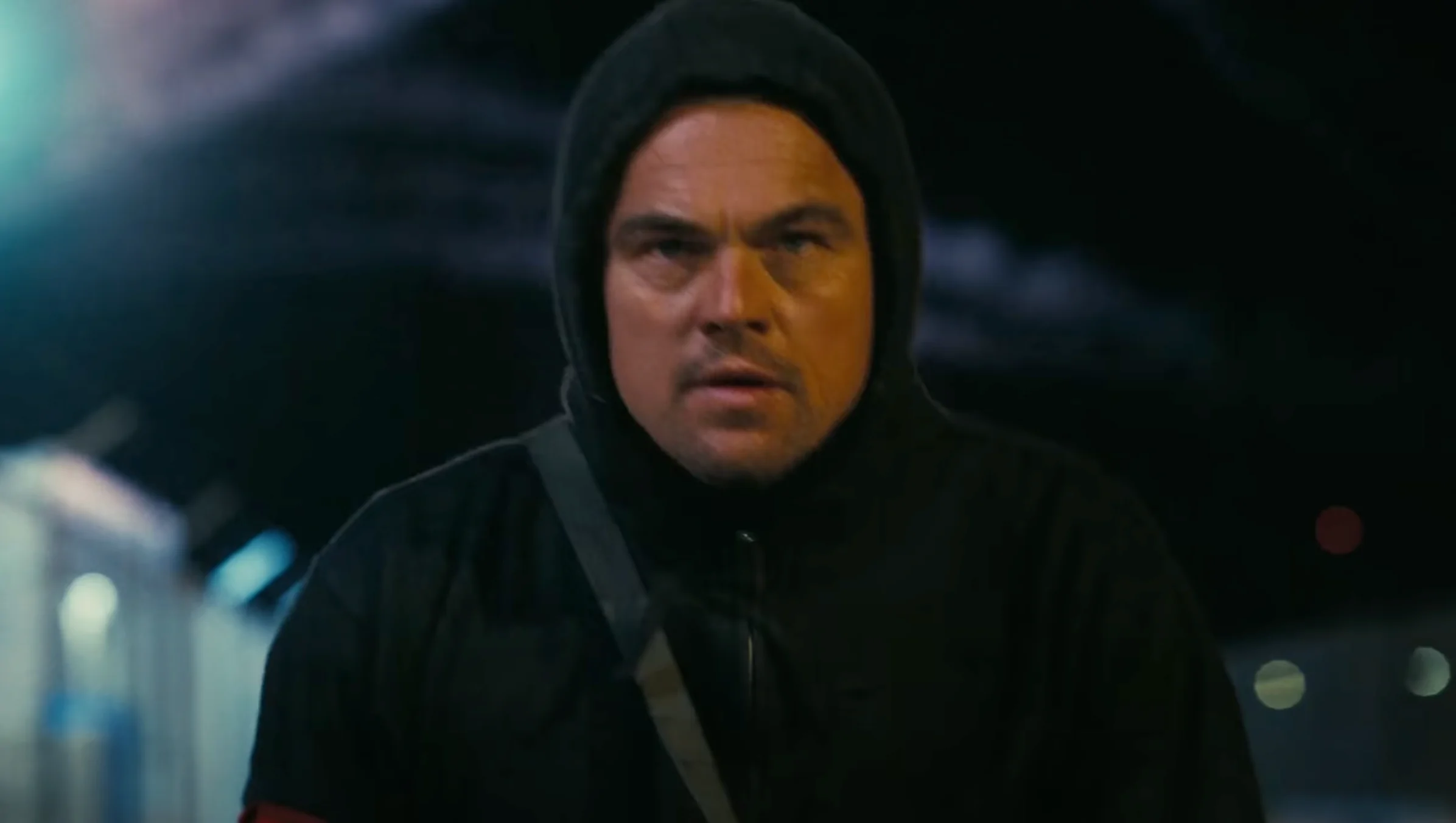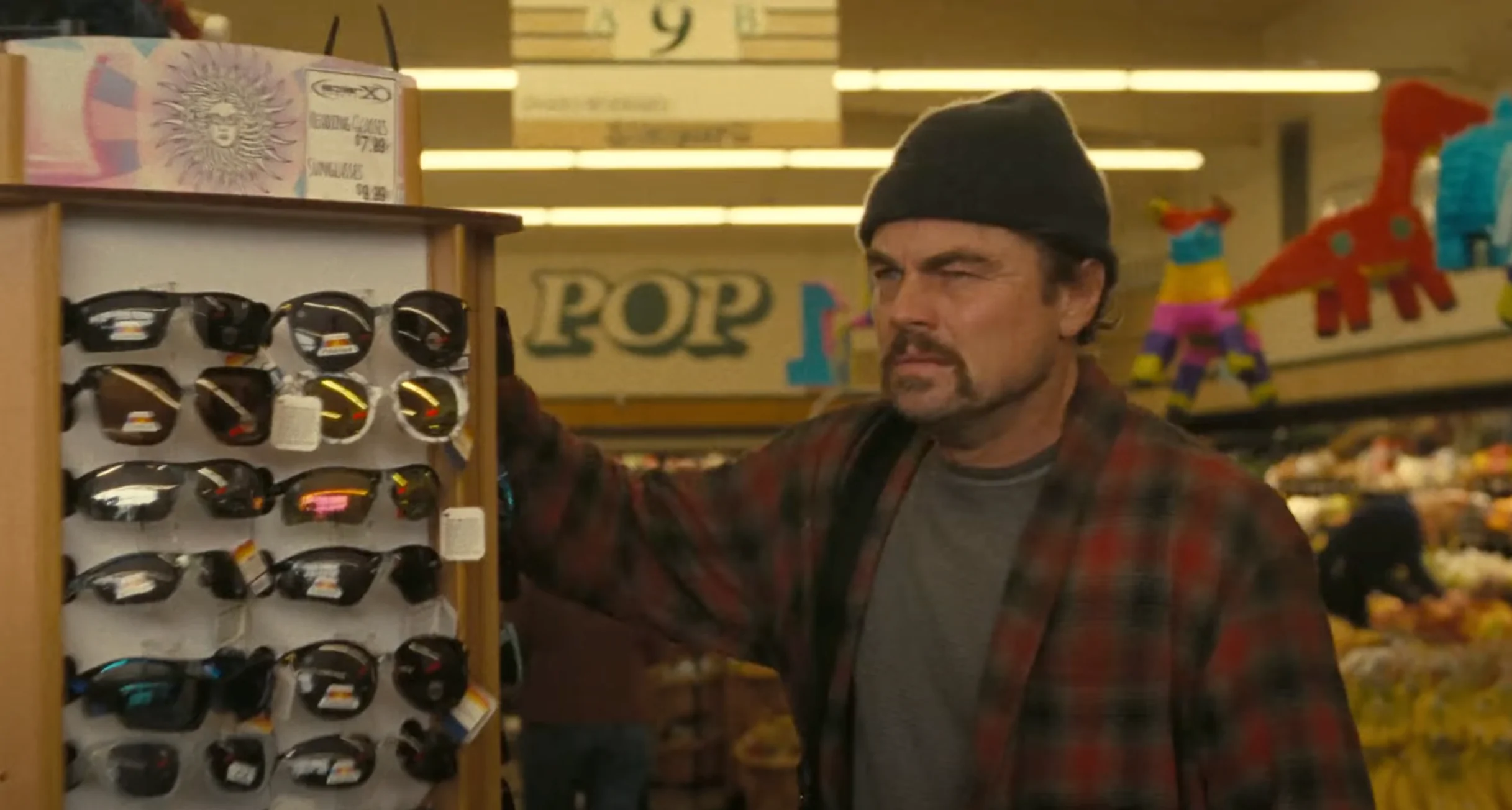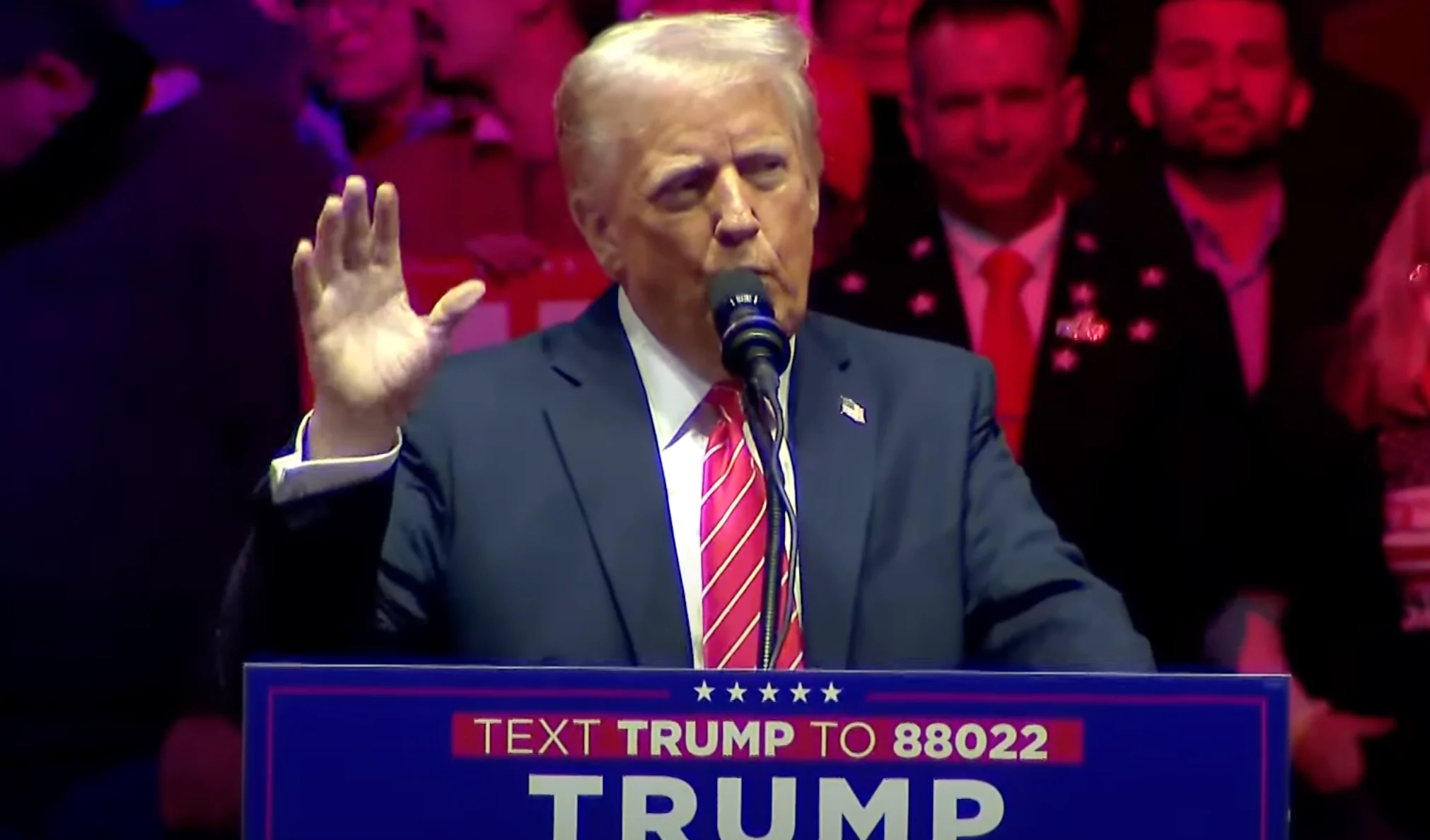
Leonardo DiCaprio’s film, *One Battle After Another*, was expected to be a major success – a gripping political thriller directed by Paul Thomas Anderson.
Instead, it’s collapsing.
Despite initial reports suggesting a decent opening, industry experts now predict the film will lose $100 million globally. This is a significant loss for any movie, but is particularly concerning given the criticism that the film praises far-left activists and depicts violence as heroic.
A Prestige Project Bleeding Cash
Sources tell *Variety* that the movie *One Battle After Another* is now predicted to lose $100 million in theaters. While the Warner Bros. film has earned about $140 million globally, it needs to make $300 million to cover its costs. This break-even point is due to a production budget of over $130 million, plus $70 million spent on marketing, for a total of $200 million.

Considering that movie theaters usually keep about half of the money from ticket sales, the film’s financial situation looks quite bad. Even though Variety called its $140 million worldwide earnings “impressive,” the movie is still losing money.
According to studio executives familiar with comparable movies, the film *One Battle After Another* is currently projected to lose $100 million, as reported by *Variety*.
Warner Bros. defended its upcoming 2025 films, pointing out they’ve already generated $4 billion worldwide, which they consider a strong result. However, that $4 billion represents total ticket sales, not actual profit, and doesn’t change the fact that this specific film is still at a loss.

Publications that once celebrated Anderson’s ambitious new film are now expressing disappointment. For example, *Variety* now calls it a failure, a stark contrast to earlier reports. The *Los Angeles Times* had initially described the film’s $22 million opening weekend as positive, while the *New York Times* called it a respectable start, though with some reservations.
That asterisk has since grown into a crater.
The Math of a Meltdown
For all the prestige packaging, One Battle After Another is a simple case of arithmetic failure:
Making the movie cost more than $130 million, and it took another $70 million to advertise it. Warner Bros. needs to sell around $300 million worth of tickets worldwide just to cover its costs.

Leonardo DiCaprio has a deal where he gets paid a percentage of ticket sales right away, even before the studio makes its money back. This is making Warner Bros.’ financial situation even worse, meaning they’re not just failing to make a profit – they’re likely losing money before considering additional expenses like royalties and other costs.
As a movie fan, I’ve been noticing that a lot of these big, ‘serious’ films just aren’t grabbing people the way they used to. According to Fandango’s Shawn Robbins, it’s because they haven’t felt like *events* – they haven’t created that sense of ‘fear of missing out’ that gets everyone rushing to the theater. It’s like they didn’t build enough buzz to make it feel like something you absolutely *had* to see right away.
Translation: for general audiences, this wasn’t a must-see.
The “Antifa” Narrative Takes Hold
Honestly, it’s not just that the movie seems to be struggling financially. Now, people are calling it a dangerous fantasy that glorifies far-left extremism. I’ve seen reports everywhere – from major news sites to independent blogs – saying that *One Battle After Another* clearly sides with radical activists and even extremists. It’s really concerning, and it’s going beyond just being a box office flop.

Here’s how some major reviews framed it:
- The Daily Beast called it “a gonzo antifa rallying cry.”
- Hollywood in Toto said the film “casts an Antifa-style group as its heroes.”
- Pajiba praised it for showcasing “modern-day rad-as-hell Antifa revolutionaries.”
- The San Francisco Chronicle review referred to “antifa-like left-wing extremists” leading the film’s plot.
Anderson’s film consistently portrays left-wing activism in a romantic light, but viewers aren’t responding positively to this depiction.
It’s an uncomfortable trend for an industry that often frames itself as morally sophisticated.
Political Timing Makes It Worse
This issue comes at a particularly difficult time for the country. Only a few weeks ago, Charlie Kirk was killed while speaking at a university event in Utah – a politically motivated attack that has brought the issue of domestic extremism back into the national conversation.
President Trump has officially labeled Antifa a domestic terrorist group. While it’s unclear if this designation will have any real legal impact, it shows how many Americans are tired of the recent unrest and disorder.

And that’s exactly what One Battle After Another glorifies.
Many viewers find the film’s depiction of militants violently attacking police and government buildings to be insensitive, especially given current events. With real-world violence already making news, a film that appears to glorify it may struggle to find a wide audience beyond film festivals.
A Familiar Story: Hollywood Spin vs. Reality
This movie follows a pattern seen with other films that received a lot of pre-release buzz for their important themes but didn’t attract large audiences. Films like *Killers of the Flower Moon*, *Napoleon*, and *Amsterdam* shared similar characteristics – they were directed by well-known filmmakers, tackled significant issues, and featured famous actors – but all ultimately disappointed considering how much money was spent making them.
Time and again, industry publications initially present a positive spin on a film’s opening weekend, but eventually report significant financial losses. This cycle has become quite common.
- Opening Weekend: “Solid debut, No. 1 spot.”
- Week Two: “Mixed box office signals.”
- Week Three: “Prestige play still strong overseas.”
- Month Two: “Studio expected to take nine-figure write-down.”
Hollywood struggles with both what stories it tells and how those stories perform financially, and these two issues are frequently connected.
A Cultural Disconnect
Hollywood seems to be increasingly out of touch with what moviegoers actually want, creating a disconnect between what studios promote and what people are willing to spend money on.
Films such as *One Battle After Another* seem made to impress reviewers and awards committees rather than to entertain general audiences. While Anderson’s three-hour film boasts beautiful visuals and strong acting, its bleak depiction of a violent revolution, driven by uncompromising ideals, feels out of touch with a society already weary of political division and extremism.

Audiences are looking for stories that feel good, are fun to watch, or simply offer a break from constant political news. When filmmakers forget this, they end up with expensive movies that get attention for being failures, not for being good.
What This Means for Warner Bros.
Warner Bros. can handle the financial loss of $100 million because other films scheduled for 2025—like *The Conjuring: Last Rites*, *Minecraft: The Movie*, and *Sinners*—are expected to be profitable. However, the poor reception of *One Battle After Another* could damage the studio’s reputation as awards season approaches.

If the movie continues to earn award nominations, as many predict, it will likely spark debate about bias in Hollywood. However, if it’s overlooked, it could be seen as a failed attempt by Warner Bros. to create an acclaimed film that instead came across as biased.
Either way, it’s a self-inflicted wound.
The Bottom Line
Originally, *One Battle After Another* aimed to be a thoughtful look at strongly opposing beliefs – a tale of both disorder and unwavering commitment. However, it’s now seen as an example of how out of touch the entertainment industry can become with what audiences actually want.
Critics may keep defending its message, but the marketplace has already rendered its verdict.

Even a high-profile movie starring Leonardo DiCaprio failed to attract viewers and lost a significant amount of money, while also being mischaracterized politically. This shows the issue isn’t that audiences are uninterested, but rather that Hollywood seems to think focusing on political themes is more appealing than telling stories about people.
Read More
- Clash Royale Best Boss Bandit Champion decks
- Vampire’s Fall 2 redeem codes and how to use them (June 2025)
- Mobile Legends January 2026 Leaks: Upcoming new skins, heroes, events and more
- World Eternal Online promo codes and how to use them (September 2025)
- How to find the Roaming Oak Tree in Heartopia
- Clash Royale Season 79 “Fire and Ice” January 2026 Update and Balance Changes
- Best Arena 9 Decks in Clast Royale
- Clash Royale Furnace Evolution best decks guide
- Best Hero Card Decks in Clash Royale
- FC Mobile 26: EA opens voting for its official Team of the Year (TOTY)
2025-10-16 17:59